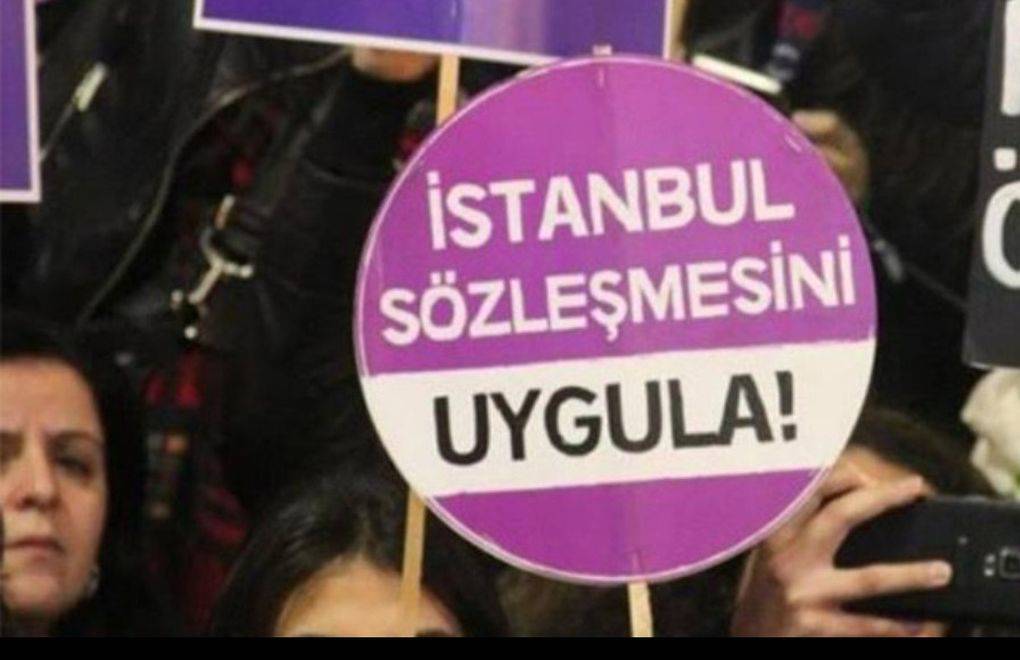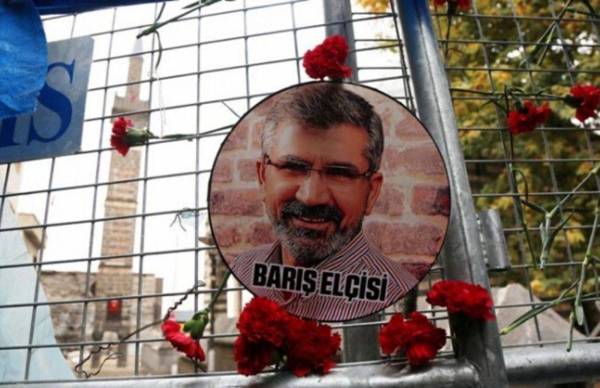Ahead of the United Nations Human Rights Committee's 142nd session, which will take place in Geneva from October 14 to November 7, bianet submitted its shadow report to the Committee.
At this session, the Committee will review Ecuador, France, Greece, Iceland, Pakistan, and Turkey under the International Covenant on Civil and Political Rights (ICCPR). Various civil society organizations, including bianet, have submitted alternative/shadow reports regarding Turkey, which will be discussed in the meetings on October 23-24.
In preparation for the review of Turkey's second periodic report, bianet submitted a 25-page report to the Human Rights Committee, presenting information and assessments on violations related to freedom of expression and other fundamental human rights, along with proposed solutions.
What’s in the report?
bianet's report provides the following summary of rights violations:
Freedom of expression
This has been a long-standing issue in Turkey. Two specific indicators highlight the seriousness of the situation: Turkey’s record before the European Court of Human Rights (ECHR) and reports from Reporters Without Borders (RSF).
Data released by the ECHR at the beginning of 2024 shows that out of 1,142 judgments on freedom of expression violations from 47 countries between 1959 and 2022, 436 (38%) were related to Turkey, revealing the country’s troubled track record in this area.
Another example is Turkey’s ranking in the RSF World Press Freedom Index. Turkey’s position has significantly declined since 2009, with minimal improvement since 2011-2012. Press freedom has not progressed since then. In 2023, Turkey ranked 165th out of 180 countries, marking its lowest position ever. According to the report, no real progress in press freedom has been made over the past decade.
Legal restrictions
Turkey’s legislative body plays a major role in restricting freedom of expression. Laws are often vague and grant excessive discretionary power to public authorities.
For freedom of expression to be safeguarded, legal frameworks must be clear and accessible, ensuring that individuals can express their opinions freely in accordance with the law.
Journalists and human rights defenders
In 2012, the Committee recommended that Turkey allow journalists and human rights defenders to carry out their work without the threat of prosecution. However, Turkey continues to frequently enforce legislation related to defamation and other related crimes and has not decriminalized defamation.
Journalists regularly face lawsuits and imprisonment, in violation of Articles 9 and 19 of the Covenant. Provisions from the Turkish Penal Code and the Anti-Terror Law are often used not as a last resort, but as a first response, which contradicts Article 19 of the Covenant. These practices create a chilling effect, discouraging media workers from expressing critical views or reporting on important public issues.
The role of the judiciary in violations
The judiciary plays a key role in violating freedom of expression in Turkey. There has been a significant increase in cases involving incitement to hatred, insults to the Turkish state, or defamation of the President. Despite some reforms in the early 2000s, these legal changes have proven inadequate. In the first three months of 2024, 55 journalists were imprisoned. As of September 5, 2024, 12 journalists remain in custody.
Interventions from the executive organ
Judicial bodies and administrative institutions in Turkey systematically interfere with freedom of expression through measures like access bans, content removals, and media takeovers.
Institutions such as the Information and Communication Technologies Authority (BTK) and the Radio and Television Supreme Council (RTÜK) restrict media freedom through sanctions like content blocking, fines, and license revocations.
Other examples of how media freedom is curtailed include cuts imposed by the Press Advertising Agency (BİK) and the decisions by the Presidency’s Directorate of Communications to revoke or deny the renewal of press cards for journalists.

BIA Media Monitoring Reports
Impact of the state of emergency
Turkey’s media landscape was severely impacted by the state of emergency declared nationwide between 2016 and 2018. Decrees No. 668, 670, 675, 677, 689, 693, 695, and 701 led to the closure and confiscation of assets of 204 media outlets, including six news agencies, 70 newspapers, 20 magazines, 41 radio stations, 38 TV channels, and 29 publishing and distribution companies.
Although some closure decisions were later reversed, the majority of media organizations were unable to resume operations, and 88% (179 out of 204) remained shut down.
Violence against women
Despite legal protections and restraining orders in place, a significant number of women continue to be murdered, as reported by media outlets.

bianet is Monitoring Male Violence
In 2023, at least 233 women were killed in their homes, while 83 were murdered outside their homes by men.
These figures reveal serious flaws in the legal framework and its implementation in addressing gender-based violence.
Recommendations
bianet’s shadow report outlines the following demands, recommendations, and suggestions:
- Urgent legal reform is needed to guarantee freedom of expression. This reform should cover all media types and ensure that freedom of expression is accepted as the rule, with limitations as exceptions.
- Crimes committed against journalists should be treated as aggravated offenses, and impunity in such cases must be eliminated.
- Legal changes should be made and enforced to ensure the independence and impartiality of institutions like RTÜK, BİK, and BTK, while limiting their powers to restrict freedom of expression.
- The Ministry of Justice should collect and publish detailed data on crimes and penalties, making this information accessible to the public. The same should apply to institutions like RTÜK, BİK, and BTK.
- Legislation should introduce effective sanctions against judicial bodies that ignore Constitutional Court rulings, and procedural laws should ensure proper implementation of European Court of Human Rights (ECHR) decisions.
- An urgent legal reform involving public institutions and civil society organizations is needed to address violence against women. Turkey should reverse its decision to withdraw from the Istanbul Convention.
Turkey’s 'delayed' reporting process
Turkey ratified the ICCPR in 2003 but submitted its first report to the Human Rights Committee in 2011—seven years after it was due in 2004.
In its Final Observations Report published in 2012, the Committee requested Turkey submit its second report by 2016. However, Turkey did not submit its second report until 2022.
On August 25, 2021, the Human Rights Committee sent Turkey a list of issues. Based on this list, Turkey prepared its report on August 3, 2022, and submitted it to the Committee on April 28, 2023. The Committee will review this report during its 142nd session.
Shadow reports
Reports by human rights organizations, particularly those focusing on the aftermath of the July 15, 2016 coup attempt, highlight the increase in human rights and freedom of expression violations.
Rights groups argue that incorporating the emergency measures from the state of emergency into permanent legislation has led to widespread violations of fundamental rights, the rule of law, and democratic standards. They point to a general regression in human rights.
In their shadow reports, civil society organizations provide assessments indicating that Turkey has not fully met its obligations under the International Covenant on Civil and Political Rights.
(AS/VK)












